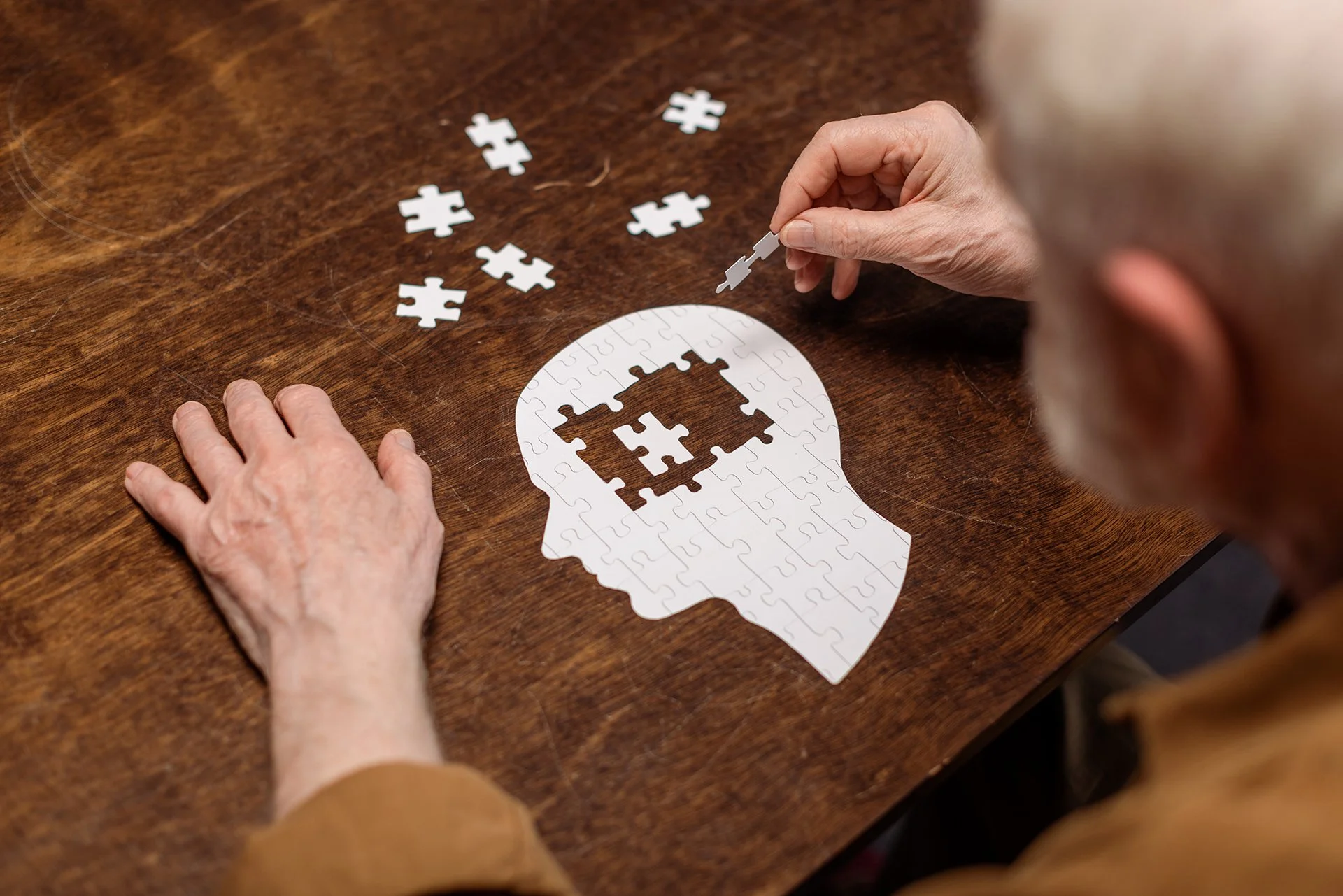Therapy for Older Adults
Aging brings many changes—physically, emotionally, and socially. Whether you're facing retirement, adjusting to health shifts, or simply reflecting on the past and future, it’s natural to feel a mix of emotions. You may be asking, “What’s next?” or wondering how to stay connected and fulfilled in this next chapter of life.
How Therapy Can Help
I offer a supportive space to explore your experiences and prioritize your emotional well-being. Together, we work to honor your history while helping you build a future that still feels meaningful—whether that’s by navigating loss, coping with change, or reconnecting with joy.
What You Can Expect
You may find renewed confidence, improved mood, better coping with changes, and a stronger sense of meaning and self as you age.
Common Concerns I Support:
Feeling isolated or disconnected
Coping with physical or cognitive changes
Adjusting to retirement or lifestyle shifts
Seeking purpose or meaning in later life
Chronic Illness & Prevention
Living with a chronic illness—whether new or long-standing—can affect every aspect of life. From physical pain to emotional fatigue, even the most resilient people can feel discouraged, angry, or overwhelmed.
How Therapy Can Help
In therapy, we focus on helping you regain a sense of control and agency. We’ll work on coping strategies, practical tools for everyday stress, and ways to stay connected to your values and goals—even when your health throws curveballs.
What You Can Expect
Clients often experience more emotional balance, less distress about symptoms, and greater resilience in managing day-to-day challenges.
Common Concerns I Support:
Managing stress or anxiety related to illness
Navigating identity shifts after a diagnosis
Living well after stroke or major health changes
Dealing with fatigue, pain, or medical trauma
Grief & Loss
Grief is more than the loss of a loved one—it can also come with retirement, moving, losing independence, or saying goodbye to a chapter of life. These transitions are deeply personal and often misunderstood.
How Therapy Can Help
Grief work honors your unique experience and helps you process the complex emotions that come with change. I provide a compassionate, non-judgmental space to mourn, reflect, and eventually find peace.
What You Can Expect
Clients often feel more emotionally grounded, better able to talk about their grief, and more connected to life again—even while still grieving.
Common Concerns I Support:
Loss of a spouse, friend, or sibling
Grieving independence or physical ability
Coping with relocation or downsizing
Feeling stuck or numb after loss
Cognitive Conditions
Memory loss, dementia, and other cognitive changes can be confusing, frustrating, and isolating—for both individuals and their families. You may be coping with a new diagnosis, noticing early signs, or struggling to support a loved one.
How Therapy Can Help
Whether you’re the one experiencing cognitive shifts or a caregiver, therapy offers space to process the emotional weight of these changes. I help clients adapt, reduce stress, and maintain dignity and connection through every stage.
What You Can Expect
Clients and families often feel more empowered, less emotionally overwhelmed, and better prepared to cope with change.
Common Concerns I Support:
Coping with early-stage dementia or MCI
Anxiety about memory or cognitive changes
Family conflict or caregiver stress
Planning and communication around care
Caregiver Family Support
Caring for an aging parent or loved one can be both an act of love and a major source of stress. You may be juggling work, family, and your own health while making difficult care decisions.
How Therapy Can Help
Caregiver counseling provides a space for you. We’ll talk about your needs, not just your loved one’s, and explore ways to cope with stress, set boundaries, and care for yourself while still showing up for others.
What You Can Expect
Clients often report feeling less overwhelmed, more confident in their caregiving role, and better able to care for themselves alongside others.
Common Concerns I Support:
Caregiver stress or burnout
Feeling overwhelmed by decisions or responsibilities
Navigating family conflict
Balancing caregiving with your own life and identity
Therapy for Veterans & Military Families
Military service leaves a lasting impact—and for older Veterans, those experiences often resurface with age, health changes, or retirement. You may be dealing with memories from long ago, adjusting to life after service, or simply looking for someone who understands the culture you came from.
How Therapy Can Help
I offer culturally informed, respectful support tailored to your lived experience as a Veteran. Whether you’re working through trauma, adjusting to health issues, or reflecting on life after the military, this is a space where you don’t have to explain the basics.
What You Can Expect
Clients often experience improved emotional regulation, reduced distress from past trauma, and a stronger sense of self outside of military identity.
Common Concerns I Support:
PTSD or military-related stress
Transitioning to civilian retirement life
Grieving fellow service members or losses
Navigating VA systems and benefits
Life Transitions
Transitions in later life—like retirement, becoming an empty nester, relocating, or changes in health—can bring mixed emotions. These shifts may challenge your sense of purpose or identity.
How Therapy Can Help
I help you process the emotional impact of these transitions and build a vision for what’s next. Therapy can help you move from uncertainty to clarity, empowering you to shape this next phase on your own terms.
What You Can Expect
Clients often feel more secure in their sense of self, more optimistic about the future, and better equipped to navigate change.
Common Concerns I Support:
Feeling lost or unmotivated after retirement
Adjusting to an “empty nest”
Identity changes after caregiving or career shifts
Navigating new roles in relationships
Healthy Habits & Sleep
Our habits around food, movement, and rest can deeply affect how we feel—physically and emotionally. Older adults may struggle with emotional eating, disrupted sleep, low energy, or shifting health goals as their bodies and routines change.
How Therapy Can Help
We work together to create a healthier, more balanced relationship with food, sleep, and daily routines. Using evidence-informed strategies, I support clients in identifying the emotions, thoughts, and patterns driving current behaviors–and in developing changes that feel realistic and meaningful.
What You Can Expect
Many clients find they experience less guilt or shame around food, better quality sleep, and more emotional stability. Others notice improved energy, self-confidence, or a renewed sense of agency in caring for their bodies.
Common Concerns I Support:
Emotional eating or stress eating
Chronic dieting or weight cycling
Frustration about body changes
Fatigue or low motivation for physical activity
Difficulty falling or staying asleep

SUPPORT THAT MEETS YOU WHERE YOU ARE
Let’s Talk About What Matters to You.
You don’t need to have it all figured out. If you’re feeling overwhelmed, uncertain, or just curious about therapy, a short call can offer clarity and calm.
No pressure—just a chance to talk about what’s been on your mind and explore what support might look like for you or someone you care about.









